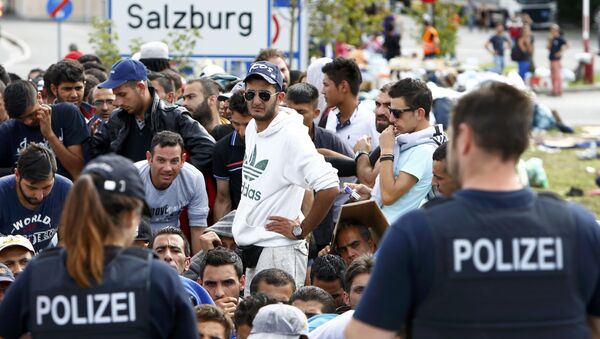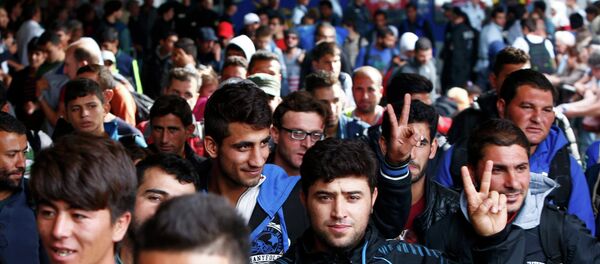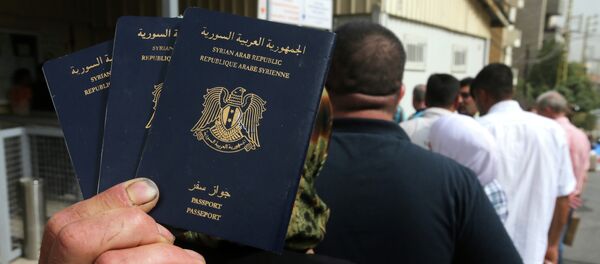Open door policy
“The critics of the “open door” policy are labeled as rightwing radicals and populists. More than half of our people prefer to keep mum about this. This is wrong because in a democracy you can’t keep your mouth shut!” Rainer Wendt said.
He added that the Alternative for Germany party was using every opportunity to win the government’s critics over to their side thus making things easier for the ruling party.
“I don’t think we should let [AfD] grow any further, I wish it never existed at all, but you can’t just ignore them, demonize them and call them Nazis like the ruling parties, the Greens and the Left do,” he said, adding that this would only help AfD attract new members.
Security concerns
Speaking about the security concerns of German citizens, he said that some people believe that they need to care for themselves.
“They are setting up local vigilante groups, obtaining licenses to carry gas pistols. Others simply go out and get hold of firearms, which is wrong because in a low-governed state the authorities have the monopoly for the use of force,” he said, adding that, unfortunately, police often failed to protect the people.
“In Cologne we misjudged the situation. We failed to protect our people by putting all those North African hoodlums behind bars. There is something wrong with our judicial system. We need laws that would enable us to deport repeat offenders and felons. But all we do now is tell them: ‘You are free to do anything you want and you will get away with that,’” Wendt complained.
“There are places where police can only enter in large groups because they are assaulted right away and have to fight for their lives. The problem is that [criminal migrant groups] are getting bigger and bigger and someday we’ll no longer be able to contain them,” he warned.
Failed court system
“Our courts are unable, and sometimes unwilling, to hand down sentences that would send the right signals to those who bend the law.”
Rainer Wendt said that if the judges always rely on the opinion of one and the same experts and optimistic social forecasts they will never hand down the right sentences.
“They should remember that people on whose behalf they hand down their sentences keep a close eye on exactly what these sentences look like,” he continued.
He added that when moving elsewhere people in Germany have two weeks to register at their new place of residence. In Berlin, however, people wait months to get registered, which means that the state fails to properly enforce this provision.
“It’s not a law-governed state we have here, it is quite the opposite. As for deportations, this is for the federal authorities to decide, not city mayors. We need to overhaul our complex federal system and reconsider the guaranteed rights of towns, municipalities and districts which often fail to properly exercise them."
Weak state
“The state is not a factory you can snap up at will. We need to bring back the powerful state apparatus; the government must invest more in its structures. We can no longer tolerate a situation when our schools are falling apart and teachers are no longer able to teach because there are too many kids in the classroom.”
“A state with no authority is worse than just weak. It is a state that will eventually cease to become law-governed simply because the law will end up in the hands of those who have muscles and money.”
“No one wants to live in a controlled society, no one wants total video observation, which is something our police cannot and is not willing to do. But if we want to have CCTV cameras in some crime-ridden neighborhood, this doesn’t mean we are poking our nose into someone’s private life. It only means that we want to protect people,” Rainer Wendt emphasized.
Europe has been beset by a refugee crisis, with hundreds of thousands of undocumented migrants fleeing their crisis-torn countries of origin in the Middle East and Africa, trying to escape violence and poverty. Germany took in over one million refugees in 2015.




